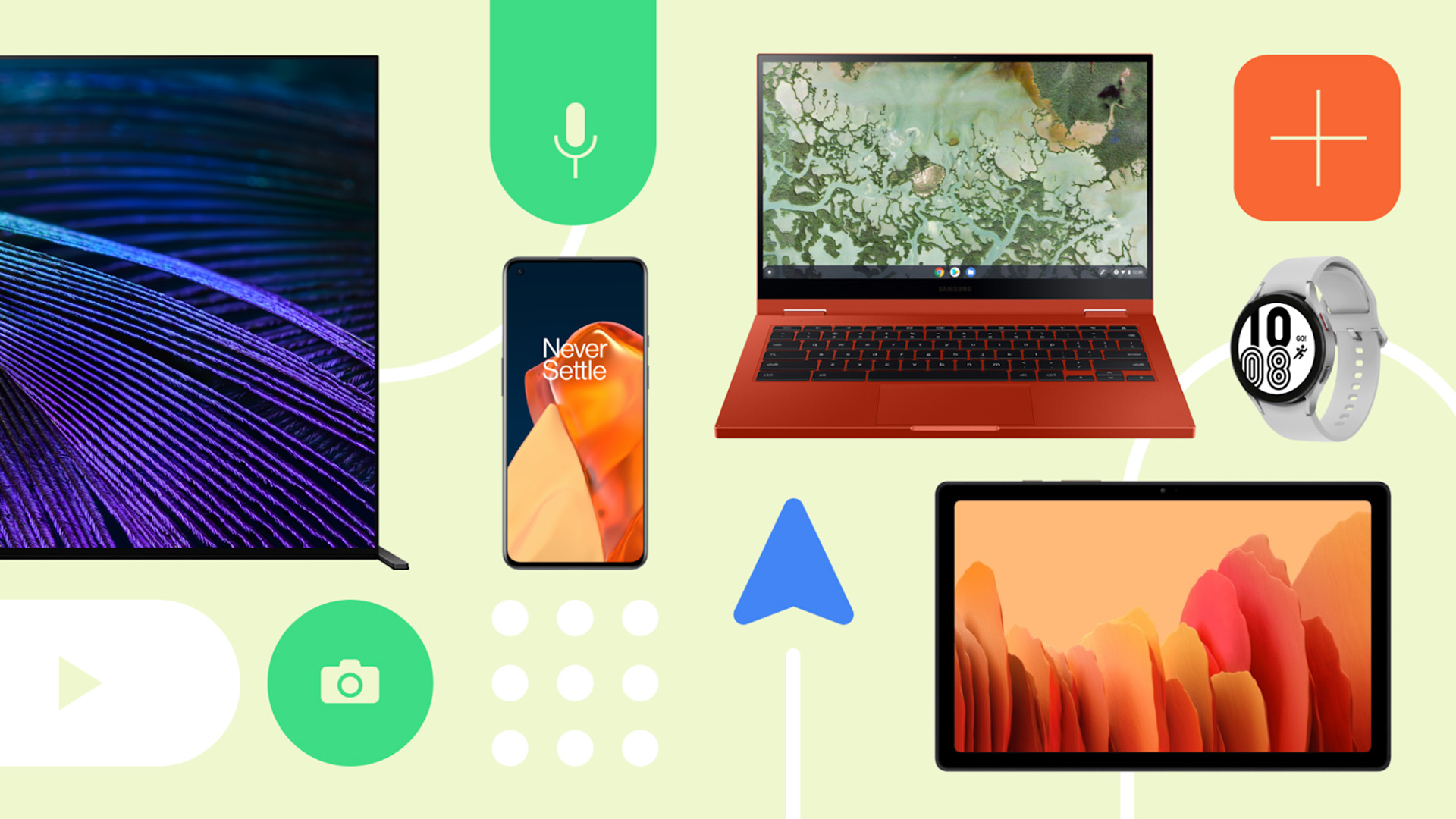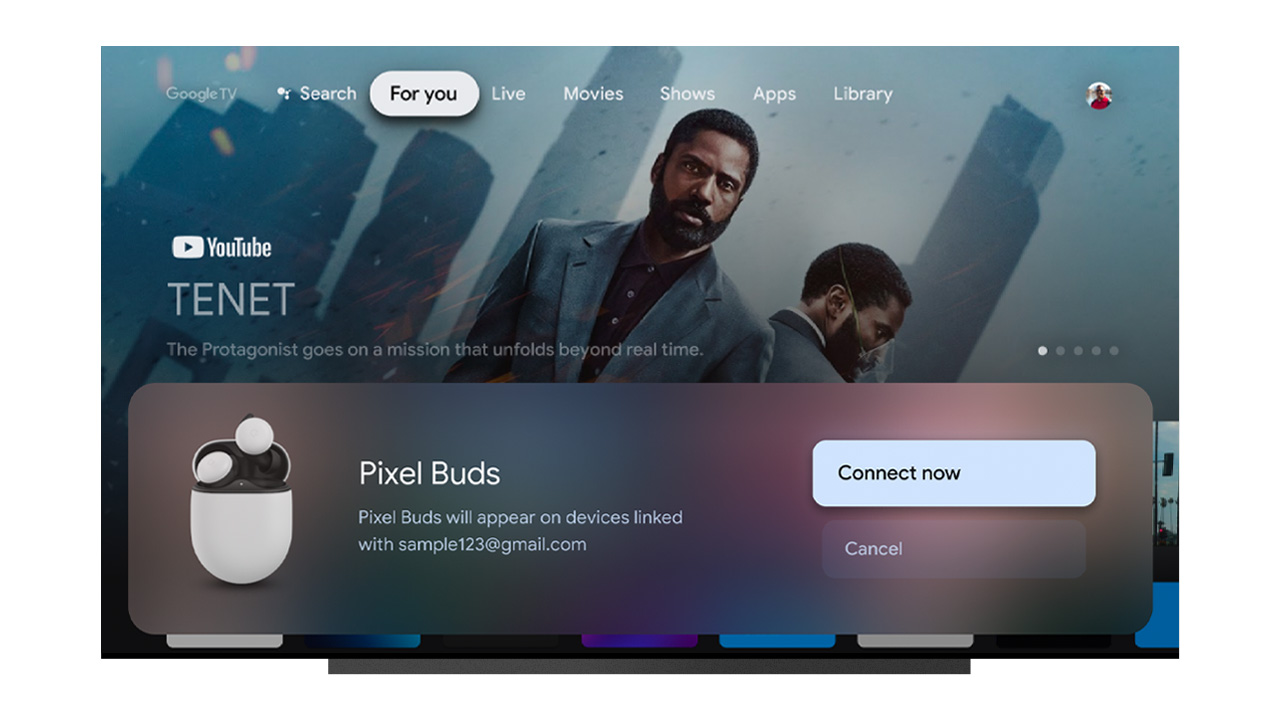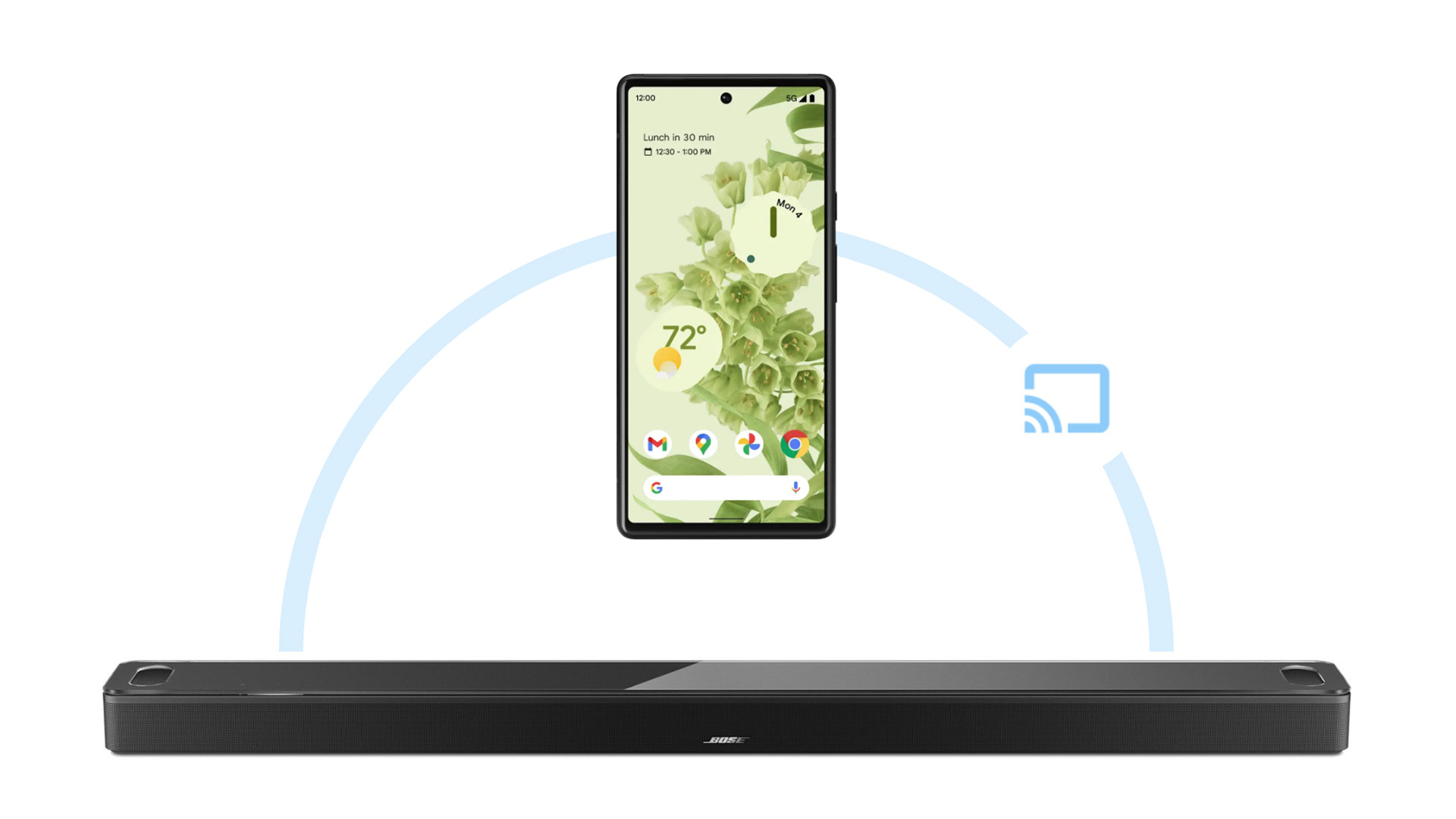Android spatial audio, smartwatch unlocking and Windows PC features from Google
Google reveals big plans for audio and cross-device integrations including fast pairing and bringing Android features to Windows PCs


Get all the latest news, reviews, deals and buying guides on gorgeous tech, home and active products from the T3 experts
You are now subscribed
Your newsletter sign-up was successful
Google has announced a series of innovations coming to its Android, Google TV, Wear OS and Chromebook platforms in 2022. These see an increased level of interactions between devices and more third-party products brought into the fold.
While now not exhibiting (due to COVID), Google's announced the roadmap on the opening day of CES taking place in Vegas. The upcoming features include ways to quickly set up devices, locking and unlocking and the ability to do more with your Android device. Some are being introduced in the coming weeks while others are expected later this year.
Perhaps the biggest of the new features was the introduction of spatial audio. This, I was told would eventually come to all devices but initially tablets and phones. There are likely to be two types of spatial audio – the first, introduced at an OS level would be virtual and available to all current devices. A second, dynamic spatial audio system would require hardware support.

Fast Pair is a function that was first introduced in 2018 but is now being expanded to all Google devices. Pairing your Bluetooth headphones to your Chromebook, Google TV or other Android TV devices will soon be much quicker and easier, as will pairing smart home devices to your network.
Fast pair will also allow you to quickly pair your Android phone to your Chromebook and even your Windows PC. Later this year, HP and Acer Windows laptops will allow nearby share functionality for file sharing, text messaging and Bluetooth accessories. This will then expand to other Intel-based machines in the future.

Chromecast is coming built-in to more third-party products, the first of which will be Bose speakers and soundbars. This, as AirPlay 2 does for Apple, will make it easier to quickly share music and video to other platforms.
Wear OS devices will be able to lock and unlock your other devices (signed in to the same account), including Chromebooks, Android phones and tablets. Later this year, Android phones with UWB technology (such as the Pixel phone and some Samsung models) will be able to be used in place of a car key for BMW vehicles. They will also be able to perform remote tasks, such as turning on the climate control and monitoring electric charging.
Get all the latest news, reviews, deals and buying guides on gorgeous tech, home and active products from the T3 experts
What is nice is that most of these advances are examples of our devices working better together – even across brands. As our number of smart devices increases, this interactivity is becoming even more important. Let's hope this synergy is a sign of things to come.

As T3's Editor-in-Chief, Mat Gallagher has his finger on the pulse for the latest advances in technology. He has written about technology since 2003 and after stints in Beijing, Hong Kong and Chicago is now based in the UK. He’s a true lover of gadgets, but especially anything that involves cameras, Apple, electric cars, musical instruments or travel.